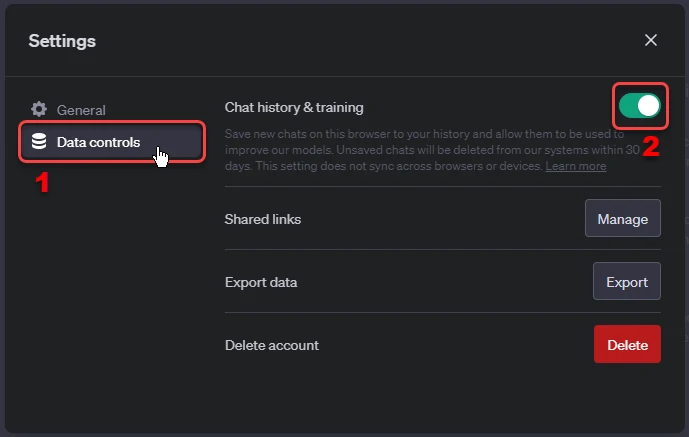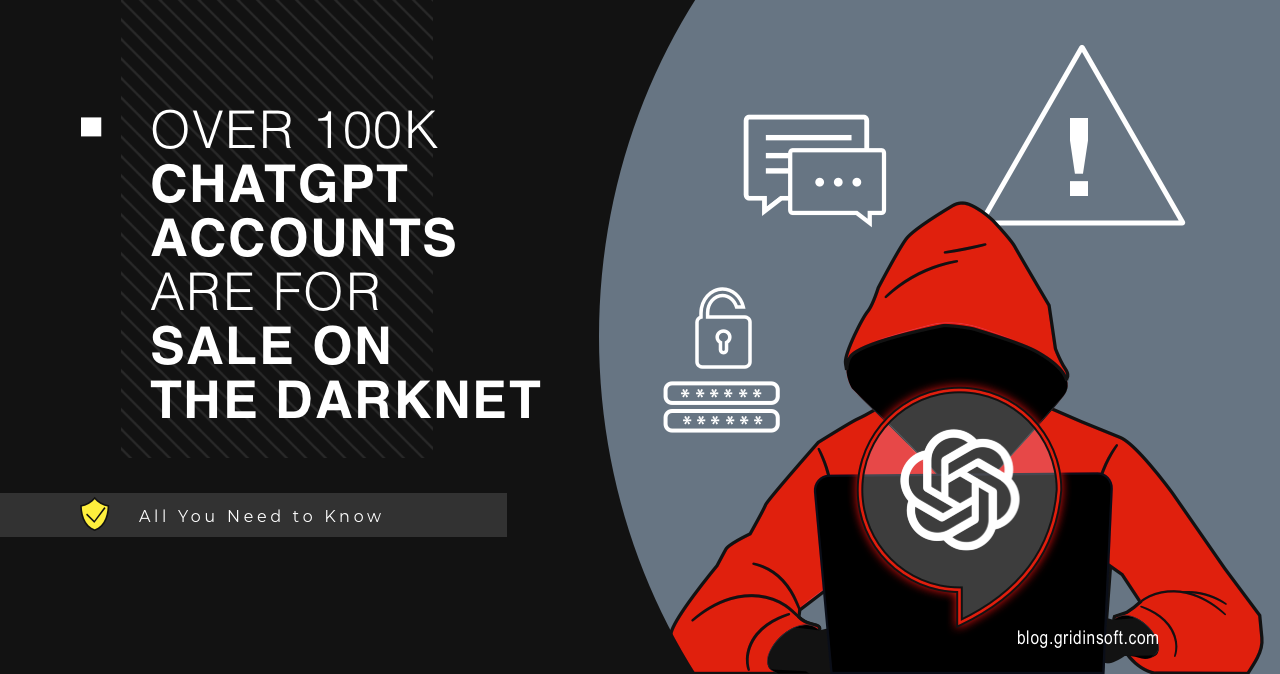According to a new report, over the past year, over 100k ChatGPT users’ accounts have been compromised using malware to steal information. India was in first place for the number of hacked accounts.
ChatGPT in a Nutshell
Perhaps every active Internet user has at least heard of a chatbot from OpenAI. Is it worth mentioning that many use it for study or work? This bot can do a lot, for example, give advice, and the recipe for your favorite dishes, find an extra semicolon and comma in the code, or even rewrite the code. Even this text was written by ChatGPT (joke). While some users use ChatGPT as a key generator for Windows, others embed it in their enterprise processes. The latter is most interesting to attackers since ChatGPT saves the entire history of conversations by default.
ChatGPT Accounts Are Compromised by Stealer Malware
According to a new report, 101,134 accounts were compromised by info stealer malware. Researchers found stolen information logs about these credentials illegally sold on darknet marketplaces over the past year. In addition, attackers stole most accounts between June 2022 and May 2023. The epicenter was Asia-Pacific (40.5%), with India (12,632 accounts), Pakistan (9,217 accounts), and Brazil (6,531 accounts). The Middle East and Africa came in second place with 2,925 accounts, followed by Europe in third place with 16,951 accounts. Next comes Latin America with 12,314 accounts, North America with 4,737, and the CIS with 754 accounts. The affiliation of 454 compromised accounts is not specified.
Tools for accounts compromise
As mentioned above, cybercriminals stole information using specific malware, exactly – stealers. This malware is specifically tuned to steal specific information. In this case, the attackers used Raccoon Stealer, who stole 78,348 accounts; Vidar, which stole 1,984 accounts; and Redline Stealer, that stole 6,773 accounts. Although it is widely believed that the Raccoon group has degenerated, this did not prevent it from stealing the most accounts. This is probably because this malware is so widespread that it continues to function even after it has been blocked by more security-conscious organizations by more security-conscious organizations.
Causes
At first glance, it may seem more reasonable to steal bank data. However, there are several reasons for the high demand for ChatGPT accounts. First, the attackers are often in countries where chatbot does not work. Residents of countries such as Russia, Iran, and Afghanistan are trying to access the technology at least that way. Accounts with paid subscriptions are prevalent.
Second, as mentioned initially, many organizations use ChatGPT in their workflows. In addition to the fact that employees often use it and may unknowingly enter sensitive information (this has happened, too), some businesses integrate ChatGPT into their workflow. For example, employees may maintain secret correspondence or use the bot to optimize proprietary code. Because ChatGPT stores the history of user queries and AI responses, this information can be seen by anyone with access to the account. Such accounts are precious on the darknet, and many are willing to pay good money to get them.
Security Recommendations
However, users can reduce the risks associated with compromised ChatGPT accounts. I recommend enabling two-factor authentication and updating your passwords regularly. 2FA will be a pain in the ass and deny attackers from logging into your account even if they know your username and password. Regular password changes are an effective tool against password leaks. Besides, you can disable the “Chat history & training” checkbox or manually clear conversations after each conversation.


